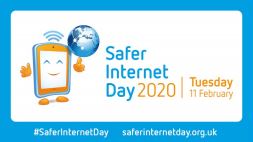
Here at Harrow Way School we are continually reinforcing how students can stay safe online. To complement this event the week will include focused lessons in all core ICT classes and assemblies tailored to the year groups on the dangers of being online and preventative measures that can be applied.
Student Resources
– Tips and links with some suggestions on how to get you started and help you to stay safe and positive online.
Google Be Internet Legends – To make the most of the internet, children need to make smart decisions. Be Internet Legends empowers younger children to use the web safely and wisely, so they can be confident explorers of the online world.
Hampshire Police – Megan’s Story – Hampshire Police have released a short video highlighting the risk of sending nude images online.
What Can Parents Do?
Safer Internet Day is a fantastic opportunity to have a conversation with children about using the internet safely, responsibly and positively. We can all play a role in empowering children to enjoy their time online!
Information and Online Resources – This identifies a variety of organisations that provide information and support. There is also access to resources for parents. Links are provided.
Conversation starters – This year, the UK Safer Internet Centre is particularly focusing on how consent works in an online context and exploring how young people ask, give, and receive consent online. This could be in their friendships or relationships, how they take and share images and videos or how they manage their privacy and data. These conversation starters are a great way to help you talk about these issues with children.
